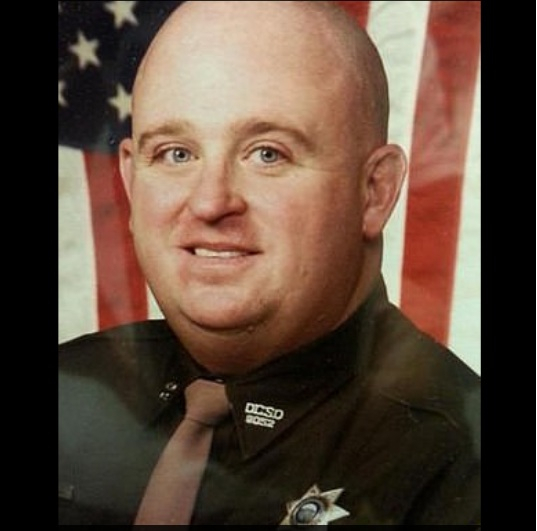A Nebraska sheriff's deputy is facing 20 years in prison for duping neighbors, locals and his friends out of $11 million in the biggest ever Ponzi scheme in the state. Craig Harbaugh, 45, pleaded guilty to fraud as part of a deal so that at least 12 other charges against him are dropped.
According to court documents Harbaugh faked contracts for tactical gear and weapons and sought loans from people across the country for investment in his firearms company, Tactical Solutions Gear LLC. And in order to back up his claims and make things look real, he had arranged fake contracts and purchase orders.
Well-Planned Move

According to prosecutors and his victims, Harbaugh had the advantage of being the sheriff's deputy and "hid behind his badge" to win over the trust of people in Dodge County on the outskirts of Omaha, Nebraska. The plan was so well executed that no one suspected him, when he started out with the scheme in 2014.
In his first move, Harbaugh opened a legitimate firearms business and named the store Tactical Solutions Gear. But thereafter everything he did was fake. He first made claims that his company has got contracts to provide state patrols with weapons and started convincing friends and neighbors to invest in his business.
Harbaugh also claimed to have contracts to provide the Department of Defense and at least 12 other agencies with rifles and convinced victims to give up their savings to invest with him. Given that he was the sheriff's deputy, made it easier for him to fake the documents and people fell into his trap.
So much so that one family gave him as much as $1.3 million, while the Great Western Bank gave him $6 million after he managed to show up to appointments in uniform and faking contracts.
Caught at Last

It is still unclear how Harbaugh got exposed but now several victims of his scheme have come up with allegations against him. According to prosecutors Harbaugh's plan is a perfect example of a Ponzi scheme where he wasn't making money but only accumulating wealth by duping others. He would collect the money from one person and pay part of it to another which looked like he was giving them returns against their investment.
"A lot of times, we just said, 'This is too good to be true. This is too good a deal," one investor said. When some of the investors lost their money and started sending him text messages alleging him of fraud, Harbaugh still continued to deny it. Instead, he continued to maintain that he had only filed personal bankruptcy but that their investment was safe.
However, after being investigated, he finally admitted this week that none of the 12 agencies he named was actually doing business with him. "I was irresponsible, immoral, criminal, and selfish," he told an employee of Great Western Bank after his scheme was discovered, according to the plea agreement.
That said, it is still not known what happened to the millions of dollars Harbaugh duped people off. Prior to his arrest, Harbaugh had spent more than two decades with the sheriff's office, including as a trainer and investigator. He now faces 20 years in prison.









